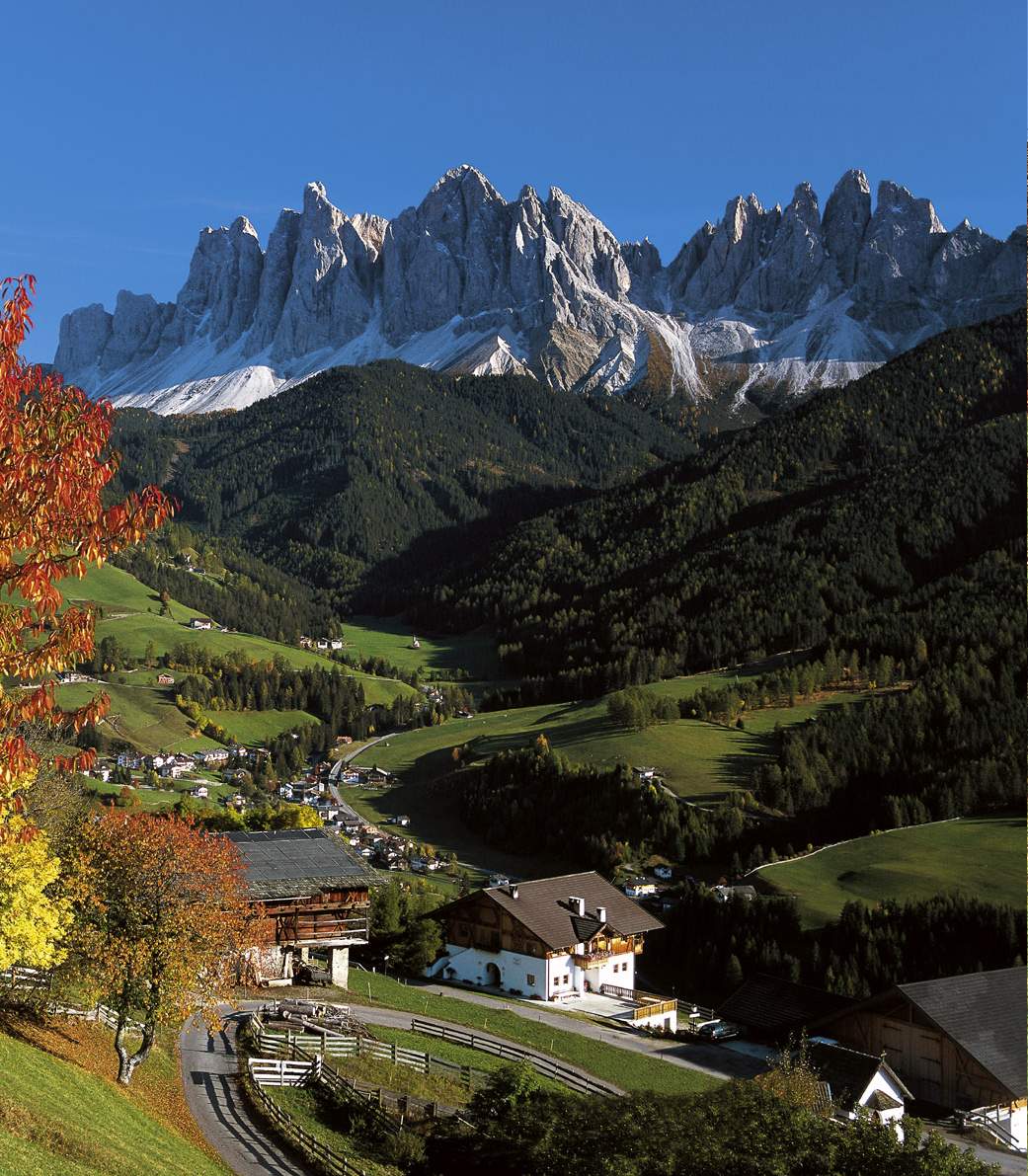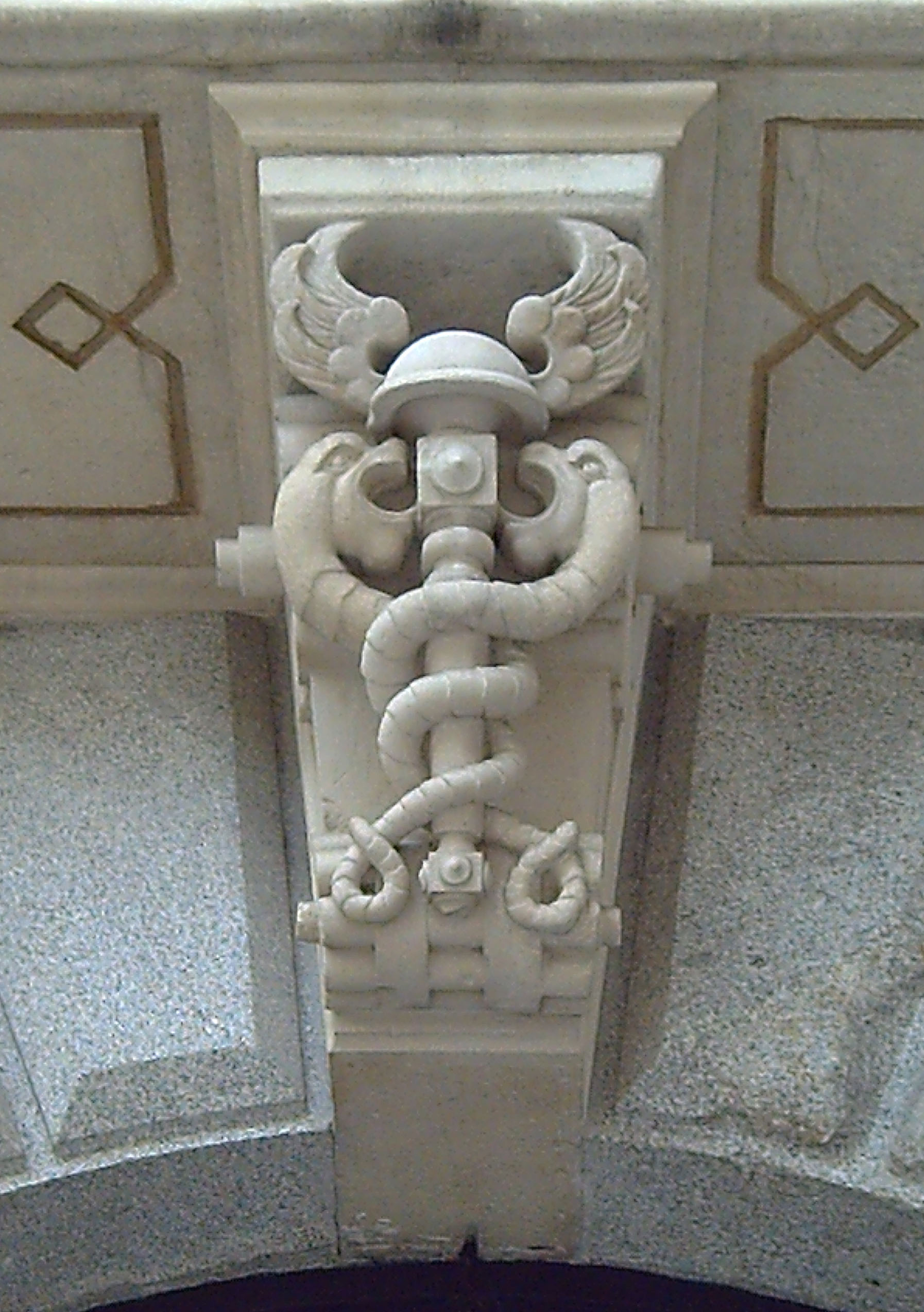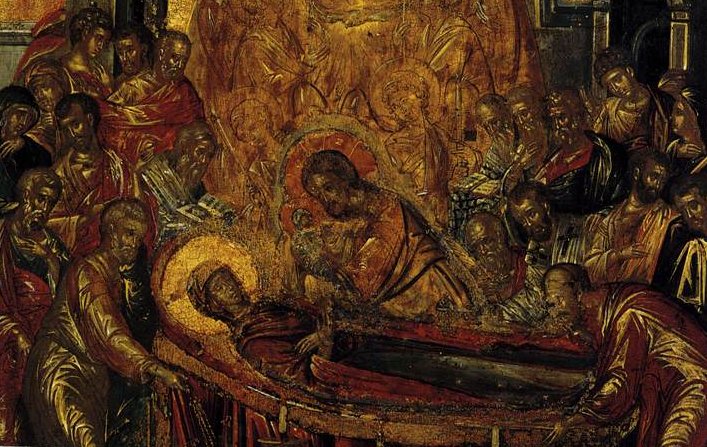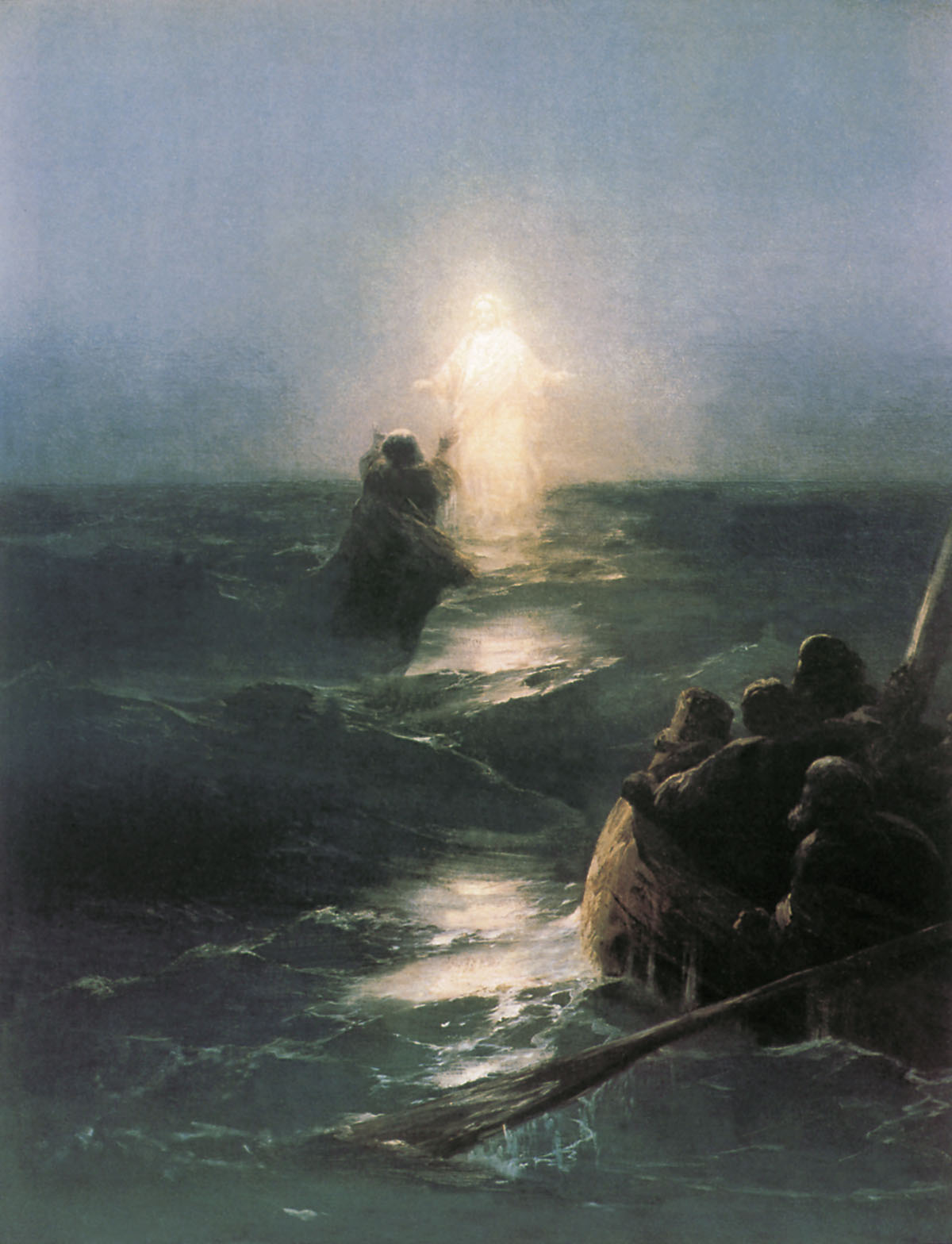22d Sunday of the Year A (31Aug2008) Jer 20. 7-9; Ps 63; Rm 12. 1-2; Mt 16. 21-27
Homily of Fr. Paul Panaretos, S.J.
Feeling With Jesus
Homily of Fr. Paul Panaretos, S.J.
Feeling With Jesus
Summer 594 of the pre-Christian calendar the Judaeans were in their Babylonian exile. In the preceding Winter, as that same year began, a coup against the Babylonian king failed. However, it caused the Jews and others under Babylonian rule to hope for and support another one. The exiled King Zedekiah summoned ambassadors of surrounding lands to form a coalition to oust the Babylonian king. Recent government leaders have duped more than us to call such a violent ousting in our time a “regime change,” a deceptive euphemism.
 A self-styled prophet/1/ gave a boost to Zedekiah by saying the exile would be over in two years. The words of the true prophet, Jeremiah, were not welcome because Jeremiah had announced before his words we just heard that things would get worse before they got better. Jeremiah once enjoyed his mission, but his mission and the exile caused him great pain:
A self-styled prophet/1/ gave a boost to Zedekiah by saying the exile would be over in two years. The words of the true prophet, Jeremiah, were not welcome because Jeremiah had announced before his words we just heard that things would get worse before they got better. Jeremiah once enjoyed his mission, but his mission and the exile caused him great pain:You duped me, O LORD, and I let myself be duped; you were too strong for me, and you triumphed. All the day I am an object of laughter; everyone mocks me. Whenever I speak, I must cry out, violence and outrage is my message; The word of the LORD has brought me derision and reproach all the day.Nevertheless, Jeremiah kept faith, hard for us to do at times, too. Jeremiah kept faith in God’s ancient promise. In their exile, Jeremiah and faithful people with prophetic hearts kept alive and clung to God’s ancient promise:
...even while [my people] are in their enemies’ land, I will not reject or spurn them, lest, by wiping them out, I make void my covenant with them; for I, the Lord, am their God. I will remember them because of the covenant I made with their ancestors, whom I brought out of the land of Egypt under the very eyes of the Gentiles, that I, the LORD, might be their God.”/2/The bible tells the story of the regime of God’s covenant. It also recounts that Israel and Judah did not keep faith over the centuries with God’s covenant, which they had entered. When it suited them or when it seemed in their own interests or practical or politic they ignored the covenant, forsaking its regime, its pattern of God’s fidelity to them, for regimes of this leader or that way of living.
Jesus, like Jeremiah, was compelled to speak a word that filled him with dread as much as it filled Peter and others to hear it: he must go to Jerusalem and suffer greatly from the elders, the chief priests, and the scribes, and be killed and on the third day be raised.
Is it because I know those final words, that Jesus was raised from death, that I do not fill with sympathy for Jesus and do not shudder with him and for him when I hear him speak of his suffering, his exile from honor as well as from human life? Peter’s horror, when Jesus warned of his passion and death, reminds us that it’s easier to accept the messiahship of Jesus when it involves glory and eternal life than when it includes denial, renunciation and suffering.
 Yet, Peter was an ardent believer even before his faith was fully formed. Denial, renunciation and suffering formed the faith that he and the apostles handed on to us. The pattern of Jesus’ life, including both suffering and glory, is the regime we Catholics try to adopt as we serve, evangelize and worship with our lives.
Yet, Peter was an ardent believer even before his faith was fully formed. Denial, renunciation and suffering formed the faith that he and the apostles handed on to us. The pattern of Jesus’ life, including both suffering and glory, is the regime we Catholics try to adopt as we serve, evangelize and worship with our lives.If we set out to change anything, it isn’t the pattern of Jesus’ life, death and resurrection. We seek to refashion, renew and transform our lives in order to pattern them on both Jesus’ alertness to the word of God active in him and Jesus’ willingness to embody it, speak it and live it.
In your daily 15 minutes with Jesus this week, pause and remember the Trinity has created you in the divine image and to become divine because Jesus became human with us. Ask Peter to present you to Jesus. Consider one way Jesus’ mission attracts you and one way it challenges or even frightens you, and speak to Jesus about each. Praise Jesus for choosing to work in the power of his Spirit through you. Close by saying slowly the Lord’s Prayer, which Jesus gave us to help us pattern our lives on his life in its entirety in order to save our lives and the lives of others.
____________
1. Hananiah was his name, and Jeremiah 28. 11-15 records their exchange about the exile’s end: within two years I will break the yoke of Nebuchadnezzar, king of Babylon, from off the neck of all the nations (verse 11).
2. Leviticus 26.44-45.
____________________________________________
Wiki-images of Jeremiah and of Jesus speaking to his apostles are in the public domain.












